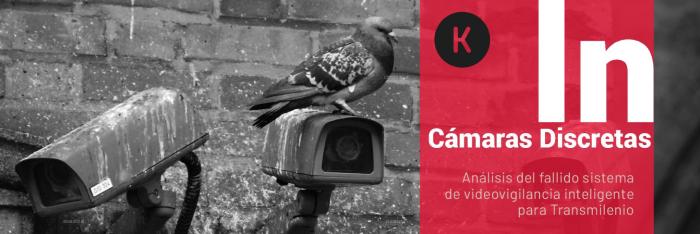Data Privacy Week: Privacy in Public Spaces

The Privacy International Network is celebrating Data Privacy Week, where we’ll be talking about how trends in surveillance and data exploitation are increasingly affecting our right to privacy. Join the conversation on Twitter using #dataprivacyweek.
In the era of smart cities, the gap between the internet and the so-called physical world is closing. Gone are the days, when the internet was limited to your activities behind a desktop screen, when nobody knew you were a dog.
Today, the objects surrounding us and those we carry with us, are increasingly connected to the internet. Even our bodies, through apps and devices that track our physical data, are now connected.
This new reality is transforming our public spaces. Many cities in particular have become heavily surveilled by governments and companies alike. This has real consequences for our democracies and deny us room for dissent and protest.
In 2018, the Privacy International Network conducted extensive research and advocacy on the issue of privacy in public spaces. Today, as part of Data Privacy Week, we look at some of the work that has been published.
Our fight for transparency on the use of IMSI Catchers
An IMSI catcher is an intrusive piece of technology that can be used to locate and track all mobile phones that are switched on in a certain area. It can be used to track attendees of a political demonstration or a public event like a football match. IMSI catchers represent an enormous invasion of our right to privacy, and potentially our rights to free expression and free assembly.
In 2018, we filed an appeal before the First-tier Tribunal in the UK to challenge a series of decisions by the Information Commissioner’s Office upholding the refusal of various police forces to disclose information about their purchase and use of IMSI catchers.
The case emerged from a series of Freedom of Information (FOI) requests submitted by PI to police forces across the UK to find out which ones among them had purchased IMSI catchers. All of the bodies refused every category of the FOI requests on grounds that they could “neither confirm nor deny” whether they held information responsive to the request.
Drones
Drones are now seemingly ubiquitous, deployed by countries to ostensibly promote safety and security in public spaces. But what, really, is the impact of drones on ordinary citizens, specifically on their right to privacy?
In the Philippines, drones have been used to support military operations, traffic management, infrastructure inspection, and more. However, a report by the Foundation for Media Alternatives highlights that this expansion in use has not been matched by adequate legal safeguards, and calls on policymakers to act soon to limit the dangers to human rights.
Indiscrete cameras and failed surveillance projects
Fundación Karisma published their analysis on a failed CCTV surveillance project that was meant to be implemented in Bogotá's public transport system.
Why are we talking about a surveillance project that didn't work instead of celebrating that fact? Because we must analyse and debate these projects to debunk some common myths when they are proposed. Governments have a tendency to oversimplify the complexity and costs involved in surveillance projects, embarking on initiatives that violate human rights and don't live up to their promises.
Eye on crime – investigations on the purchase of CCTV cameras in South Africa
Nowadays, CCTV has seemingly become an integral part of crime control and urban development policy, promoted by police forces and politicians as a primary solution for civic dysfunction. In 2018, we supported the publication of two investigations by Heidi Swart on the purchase of CCTV cameras in Johannesburg and Cape Town in the South African online newspaper Daily Maverick.
In September, Swart revealed how the purchase of new high-tech surveillance cameras in Johannesburg – featuring facial recognition – could lead to false arrests, the targeting of innocent citizens and discrimination against minorities.
Later that year, Swart shed light on the hidden cost of the 1,500 CCTV cameras and surveillance drones deployed in Cape Town.
Punjab government’s Safe Cities project: Safer city or over policing?
In Pakistan, the Punjab government finalised its Safe Cities initiative in early 2018, which saw the installation of 8,000 CCTV cameras around the capital with the aim of improving urban policing through ICTs. The Digital Rights Foundation examined the project from a human rights perspective, and found that a lack of regulation could result in it eventually being used as a tool to justify increased surveillance in public spaces.
Our cities are turning into increasingly surveilled spaces, where there is no longer such a thing as strolling anonymously down the streets. The PI Network will continue documenting the realities of surveillance and keep pushing back against projects that negatively affect our human rights.




